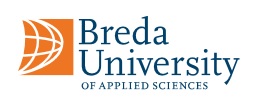Bachelor of Logistic Management (Breda University of Applied Sciences)
Breda, Netherlands
Reviewed by AeQui
- Valid from
- 11-06-2025
- Valid until
- 10-06-2031
Contact information
- Institution
- Breda University of Applied Sciences
- Website
- https://www.buas.nl/en
- Country
- Netherlands
Assessment report
BUas Logistics Management CeQuInt rapport definitief (2)Executive Summary
This report contains an assessment of the quality of internationalisation at the bachelor programme in Logistics Management of Breda University of Applied Sciences (BUas). The audit was performed by an international panel, convened by AeQui, during a site visit to Breda on 6 and 7 June 2024. The panel’s findings, considerations and conclusions are based on a dedicated self-evaluation report, additional materials illustrating BUas’ performance on internationalisation and discussions with different stakeholders.
With respect to the standard around intended internationalisation, the panel concludes that internationalisation is at the heart of the programme. The panel also concludes that goals have been made explicit and are supported by the different stakeholders. In addition, the panel notes that the internationalisation goals have been translated into realistic objectives, regarding education, research and organisation. Since internationalisation is at the core of the programme, it is also an integral part of students’ education. The panel is of the opinion that the BUas+ and the focus on internationalisation are unique selling points of the programme. Moreover, the panel establishes that the internationalisation plans are adequately documented. The panel recommends the programme to make internationalisation and intercultural competences as well as the BUas+ goals even more explicit in the documentation of the internationalisation goals of the own programme. The panel assesses Standard 1. Intended internationalisation as good.
Regarding the standard around international and intercultural learning, the panel concludes that the underlying criteria of this standard are met by the programme. Intended learning outcomes regarding international and intercultural learning are defined especially at course level, are implemented in the curriculum and assessed properly. Regarding the achievement of graduates, the panel concludes that the programme succeeds in educating ‘+shaped’ professionals; professionals with a broad view that can find their way in a challenging future in an international environment. The panel recommends that the programme not only describes international and intercultural competencies in course-level goals, but also makes them more explicit in the intended learning outcomes. In this way, they can also be made more explicit in the assessment of the final work. The panel assesses Standard 2. International and intercultural learning as satisfactory.
With respect to the standard around teaching and learning, the panel found that the content and the structure of the curriculum provide excellent means for achieving its international and intercultural intended learning outcomes. In addition, the teaching methods are very suitable, and the programme succeeds in creating an international learning environment that fosters and stimulates the development of international and intercultural competences. The panel therefore assesses Standard 3: Teaching and Learning as good.
Concerning the standard around staff, the panel concludes that the composition of the staff facilitates the achievement of the international and intercultural intended learning outcomes quite well. Staff members have international experience and good intercultural competences and language skills. BUas and the programme provide ample services to staff to facilitate international experiences, intercultural competences and language skills. The services are in line with the staff composition and needs. The panel welcomes the international and intercultural background of many Dutch staff. The panel nevertheless recommends continuing to recruit staff of non-Dutch nationality to maintain a truly multinational and intercultural team. The panel assesses Standard 4: Staff as good.
With respect to the standard around students, the panel found that the composition of the student group is in line with the programme’s internationalisation goals. The programme’s internationalisation goals are supported by the excellent opportunities for students to gain internationalisation experiences and the extensive services related to internationalisation. The panel therefore assesses Standard 5: Students as good.
In conclusion, the panel considers that the bachelor programme in Logistics Management fulfils each of the five standards of the CeQuInt assessment framework. Four standards are judged to be of good quality. The panel’s overall assessment on the quality of internationalisation is therefore positive.